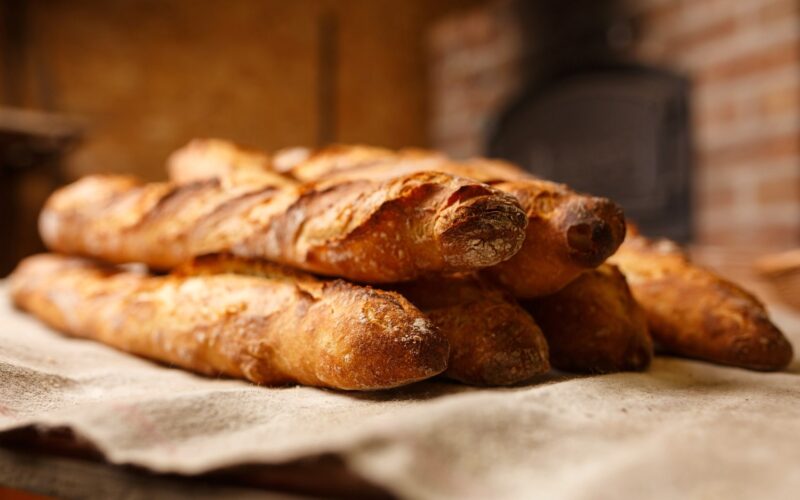On the French table, La Baguette is an indispensable traditional food. At the end of 2022, it will be listed as an intangible world cultural heritage symbolizing France by the World Heritage Committee. But now it is currently facing a double crisis of changing food culture and rising wheat and energy prices.
Taipei, Taiwan (Business Northeast) – Do you know how famous La Baguette is in France? When it comes to French bread, baguette comes to mind immediately. It is a must-have delicacy on the French table and is what French President Emmanuel Macron called “250 grams of magic and perfection”. In 2022, it has been listed as a member of the Intangible Cultural Heritage of Humanity by the World Heritage Committee, officially certified as an eternal symbol of France.
According to statistics from the National Federation of French Bakeries, about 16 million baguettes are baked in France every day, and more than 6 billion baguettes are baked a year. Just like the orientals are used to eating rice and noodles, they think that they should eat French baguettes every day. Therefore, the baguette can be said to be a part of the typical life of the French, and it is also one of the most representative foods.
This time the World Heritage Committee will be held in Morocco on November 27, 2022. There are 56 candidates for world cultural heritage that participated in the selection. In addition to handmade baguettes that also represent the spirit of French craftsmanship, there are also sljivovica from Serbia, pottery from Vietnamese minorities, and Tuvalu that will be submerged by seawater at the end of this century. The Great Barrier Reef suffered serious bleaching problems in recent years also join the selection.
The French have used baguettes as their daily staple food for more than a hundred years. When making standard and traditional baguettes, the raw materials are only flour, salt, water, and yeast. No other additives can be added. Seemingly simple materials, due to the different focus of details and flour ratios pursued by the craftsmen, they develop their aromas, cracks, and holes, symbolizing the exclusive signature of each baker, and also the spirit of handmade craftsmen. The best-tasting baguettes are baked the day, so when COVID-19 broke out going out to buy baguettes became one of the few social interactions during the lockdown of the city, which involved everyone’s emotions. This was also one of the reasons for this selection.
Even though the tradition of making baguettes and the unique French way of life they formed have been given the status of intangible cultural heritage by UNESCO, French baguettes still face an extremely real test of survival.
In the 1970s, there were more than 55,000 artisanal bakeries in France, and each bakery supplied the bread needed by 790 people on average. However, due to the increase in the number of machine-produced bakeries, the popularity of supermarkets in rural areas, and the increase in the market share of foreign food cultures such as hamburgers, the French food culture has changed, and the status of French bread has been impacted. On average, about 400 bakeries are closed every year. Up to now, there are more than 33,000 handmade bakeries left, and one store supplies about 2,000 people’s needs.
Combined with the effects of COVID-19, climate change, and the Ukrainian-Russian war, French inflation has hit record highs. In the case of soaring energy and wheat prices, the monthly electricity bills of bakeries have risen from about 400 euros to 1,000 euros, and many bakeries have closed down because they cannot afford the high electricity expense. Even though the government has announced that bakers’ tax payments will be amortized to free up cash to pay electricity bills. Energy suppliers have also proposed special payment plans for bakeries. But because the application procedures are too complicated, it is still very difficult for people to make a living.
In France, there are bakeries closed down every day, and people may have to drive more than 10 kilometers to buy their favorite French baguette because of the closure of bakeries near their homes. Let this representative cultural heritage face a huge test of survival.










